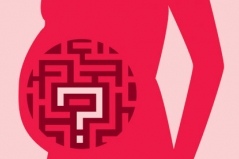Are conservatives really simple-minded?

keywords:
political ideology / conservatives / simple-minded / complexity
Are conservatives really simple-minded?
The current consensus in psychology is that political conservatives are uniquely simple-minded. Indeed, even the famous critic of political bias and Heterodox contributor Jonathan Haidt (and colleagues) suggested that there is a “consistent difference between liberals and conservatives” on several measurements related to cognitive complexity (Joseph, Graham, & Haidt, 2009, p. 176). / more
Foetus or child? Language and attitudes toward abortion

keywords:
language / attitudes toward abortion / humanness attributions
Foetus or child? Language and attitudes toward abortion
Due to moral, religious and cultural sensibilities, the topic of abortion still gives rise to controversy in many countries. In this post, I will discuss our research showing how language used in abortion discourse can affect people’s attitudes by changing their attributions of humanity to unborn (Mikołajczak & Bilewicz, 2015). / more
From the Editors: On the Current State of Science Journalism
From the Editors: On the Current State of Science Journalism
As we move through the 21st century, psychological science is at a crossroads. We are maturing as a field, albeit with some growing pains. The newest groundbreaking discoveries from cognitive, behavioral, and social scientists impress the academic community, and continue to prove the worth of studying the human mind. At the same time, our “food fights” about proper methodology and publishing norms (among other topics) pave the way for innovations that may end up being... / more
What is c Factor, and Where Can I Get It?

keywords:
collective intelligence / social sensitivity / equitable turn-taking / breadth of perspective
What is c Factor, and Where Can I Get It?
Meredith just landed her first job at a run-of-the-mill industrial design firm. As the newest member of an important project team, she began as an “average” member of the group. The team was reasonably strong; they met their deadlines for the most part, but there was definitely room for improvement. After some time on the team, her buy-in for the project began to build. With this growing enthusiasm came a desire to be a more noticeable... / more
Refugees work placement: Call for collaboration

keywords:
refugees / netherlands / work placement / recruitment
Refugees work placement: Call for collaboration
In the Netherlands only, more than 25.000 refugees arrived this year, and the numbers are rapidly increasing. One of the biggest challenges for refugees is to acclimatize, adapt, and find jobs in a new country. As a group of behavioral change experts, we want to help them, but we need some expert collaborators. This is a call for collaboration with a programmer, translator, and refugee organizations. / more
Empathy and prejudice after attacks in Paris and Beirut

keywords:
terrorism / Construal Level Theory / terror management theory / fear / prejudice / over-generalization / categorization
Empathy and prejudice after attacks in Paris and Beirut
In this blog, I will try to explain why we showed more empathy for victims in Paris than in Beirut, and how feelings of fear after such a terrorist attack can lead to prejudice against out-groups, especially against Muslims. / more
Can you nonbelieve it: What happens when you do not believe in your memories?

keywords:
belief / recollection / non-believed memory / trauma / eyewitness
Can you nonbelieve it: What happens when you do not believe in your memories?
Human memory is susceptible to errors and distortions. This may sound cliché (Loftus, 2005), but the practical meaning of this is illustrated by, for example, the devastating effects of mistaken eyewitness identifications (Sagana, Sauerland, & Merckelbach, 2012), the far-reaching consequences of innocents who falsely confess to crimes they never committed (Kassin & Gudjonsson, 2004), and the tragedy of adults who erroneously come to believe that they recovered very early memories of abuse experiences (Loftus, 1993). As... / more
Seeing and Believing: Common Courtroom Myths in Eyewitness Memory
![US courtroom - Carol M. Highsmith [Public domain], via Wikimedia Commons US courtroom - Carol M. Highsmith [Public domain], via Wikimedia Commons](https://in-mind.org/sites/default/files/styles/article_image/public/field/image/courtroom_united_states_courthouse_davenport_iowa.jpg?itok=WW7WpHSy)
keywords:
eyewitness identification / memory / myths / common sense
Seeing and Believing: Common Courtroom Myths in Eyewitness Memory
When it comes to understanding eyewitness memory, people’s commonsense views are sometimes consistent with contemporary scientific knowledge – but sometimes they are dangerously adrift. This article aims to unravel some of the common myths that appear in the courts, in the news, and in the awareness of the public. On a mid-summer evening in 1982, in a small town in the southern U.S., 24-year-old Susan1 was walking home, when a man grabbed her, threatened her with... / more
Finding Your Way With Your Baby: The Emotional Life of Parents and Babies
Finding Your Way With Your Baby: The Emotional Life of Parents and Babies
I recently visited my friends to see their newborn baby boy. When I arrived, the baby was just fed, clean and seemed happy. Nevertheless, after a while it started wiggling and finally crying, seemingly with no reason at all. My friend tried to comfort his son, but when all methods failed, he gave up and passed the little one to his wife, mumbling “Well, baby whisperer, maybe you know what it is that he wants.” As amusing as it was... / more
What does your selfie say about you?
keywords:
personality / selfie / zero-acquaintance judgment / social media
What does your selfie say about you?
Selfie is a new form of self-expression in this digital age. In this post, I will discuss our research on how selfies reveal the personality of their owners and how people judge others’ personality based on selfies. / more


